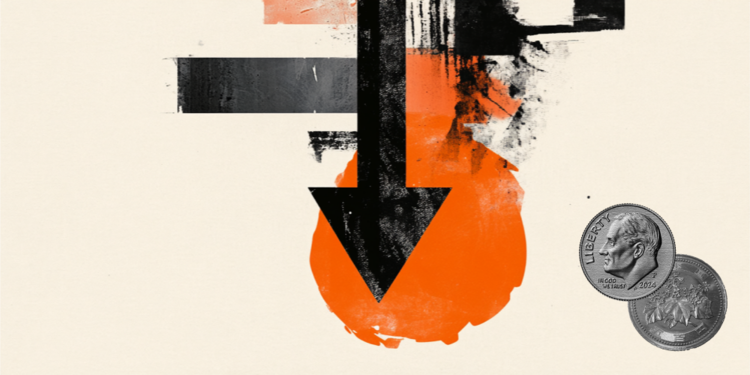- USD/JPY falls sharply to near 140.50 as US President Trump has challenged the “autonomous” status of the Fed.
- Donald Trump wants Fed Powell to ease monetary policy.
- The BoJ is expected to continue supporting more interest rate hikes.
The USD/JPY pair falls sharply to near 140.50 during North American trading hours on Monday. The pair cracks after breaking below the previous week’s low of 141.64 and aims to revisit the 21-month low of 139.60. The asset has shown significant weakness due to a sharp downside in the US Dollar (USD).
The US Dollar Index (DXY), which tracks the Greenback’s value against six major currencies, plunges to near 98.00, the lowest level seen in three years.
Investors dump the US Dollar as United States (US) President Donald Trump has threatened to fire Federal Reserve (Fed) Chair Jerome Powell for not lowering interest rates. Last week, Powell indicated that the economy is allowing us to stay where we are until we get clarity over how the economy will shape the economic outlook.
The Fed really owes it to the American people to get interest rates down. That’s the only thing he’s good for,” Trump said. “I am not happy with him. If I want him out of there, he’ll be out real fast, believe me.” Trump said on Friday.
The scenario has been seen as a dent in the confidence of Washington in the Fed’s operations, which is an autonomous institution, and has resulted in investors doubting the safe-haven status of the US Dollar.
Meanwhile, the Japanese Yen (JPY) outperforms as its safe-haven demand has increased due to heightened global economic uncertainty amid an absence of clarity on Trump’s tariff policies, even though Trump has announced a 90-day pause in the execution of reciprocal tariffs.
Financial market participants are anticipating that Trump’s international policies will force central banks to shift to an “accommodative” stance across the globe. However, the Bank of Japan (BoJ) is expected to continue supporting interest rate hikes, a report from Reuters indicated. The agency reported that higher risks from higher US tariffs won’t derail a cycle of rising wages and inflation seen as crucial to keep raising interest rates.

